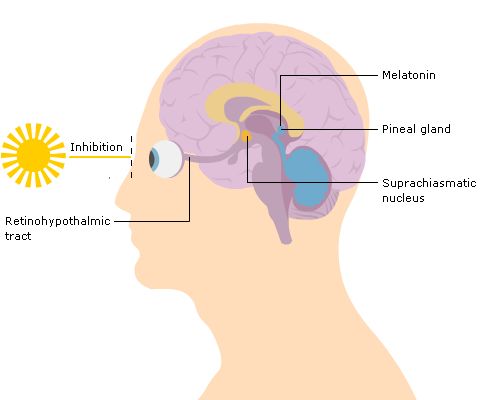Sleeping Part 1: Normal Physiology and Common Problems course


This session is designed to help you manage the common sleep problems that arise in young children. It covers the normal pattern of sleep and variation in children aged between 0 and 5 years, and also discusses the range of sleep problems that can occur along with a description of their impact on the family.
Learning objectives
By the end of this session you will be able to:
- Describe normal sleep and sleep behaviour in young children (0-5 years)
- Outline the physiological basis for sleep behaviour
- Recognise the factors that impair or promote the development of sleep routines in children
- Provide guidance and support for parents of children with common sleeping problems
The importance of good sleep patterns has both an anecdotal and a sound scientific background to support the relationship between sleep and learning and behaviour. Strong associations have been identified with mood, attention and concentration in adults and children.
Before commencing this session you should:
- Have an understanding of basic physiology and behaviour management in young children
Associate Professor Helen Heussler (MB BS FRACP MRCPCH DM) is a Developmental and Behavioural Paediatrician and a qualified Sleep Physician.
Her career has been spent in Queensland, RCH Melbourne, Victoria and the University of Nottingham. She currently works at the Mater Children’s Hospital in Child Development and in the Queensland Paediatric Sleep Disorders Unit.
Her interest is in supporting and investigating the sleep difficulties in children with developmental and behavioural issues. Current research interests include the sleep of children with Prader-Willi and Angelman syndrome, Smith-Magenis syndrome, Velo-cardio-facial syndrome and Charge syndrome, mitochondrial disorders and autism, as well as the pharmacokinetics of melatonin.

- End of Life Care | Advance care planning | Advance...
- Posted By eIntegrity Healthcare e-Learning
- Posted Date: 2025-01-13
- Location:Online
- This session focuses on principles of good practice which underpin the appropriate and valid use of Advance Decisions to Refuse Treatment (ADRT), within an end of life care context. This session was reviewed by Fiona Rawlinson and Sarah Hanrott and last u
- End of Life Care | Advance care planning | Advance...
- Posted By eIntegrity Healthcare e-Learning
- Posted Date: 2025-01-13
- Location:Online
- This session builds on the principles of advance decisions to refuse treatment. It focuses on the practical steps involved in supporting patients requesting the development of an advance decision. This session was reviewed by Fiona Rawlinson and Sarah Han
- End of Life Care | Advance care planning | ACP in ...
- Posted By eIntegrity Healthcare e-Learning
- Posted Date: 2025-01-13
- Location:Online
- This session describes how the Preferred Priorities for Care tool may be used to facilitate advance care planning. This session was reviewed by Fiona Rawlinson and Sarah Hanrott, and last updated in February 2023.
- End of Life Care | Advance care planning | ACP and...
- Posted By eIntegrity Healthcare e-Learning
- Posted Date: 2025-01-12
- Location:Online
- This session provides an overview of the concept of illness trajectories and its influence on the advance care planning (ACP) process in end of life care. This session was reviewed by Fiona Rawlinson and Sarah Hanrott and last updated in February 2023.
- Acquired Brain Injury course
- Posted By eIntegrity Healthcare e-Learning
- Posted Date: 2025-01-12
- Location:Online
- This session will outline the causes and effects of acquired brain injury (ABI) in childhood. It wil...








